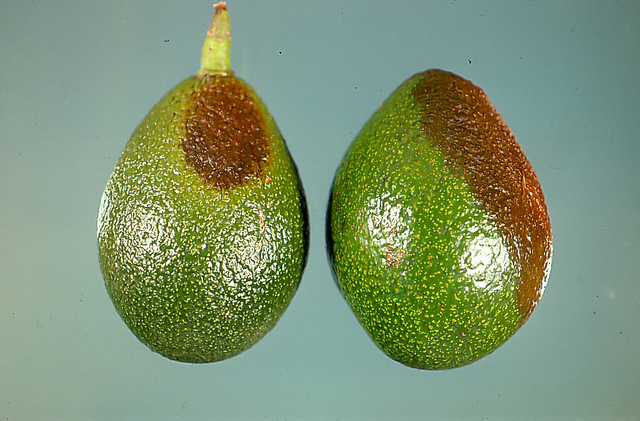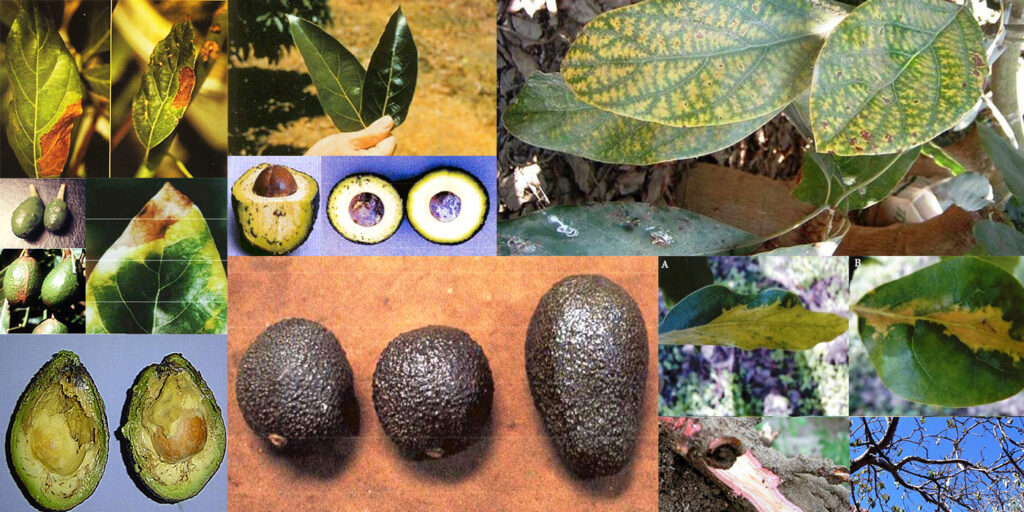Understanding the Hass Avocado orchard soil nutrition
One of the factors that play an important role in obtaining quality fruit is the nutrition of the Avocado grafted tree.
In Mexico there is an official Mexican standard to carry out studies and tests for the analysis of the quality of soils for agricultural plantations: The NOM-021-RECNAT-2000
The Mexican (Michoacan state) soils of the avocado fringe are deficient in N, P, Ca (Etchevers 1985), although they have high K content, it is generally not available for the plant. For this reason, the application of N, P, K and Ca is required to supply these elements to the crop. (Please read it more at: http://www.avocadosource.com/WAC5/Papers/wac5_p401.pdf)
Nutrient deficiencies and excesses are expressed in the size, quantity and appearance of the fruit:
- a) Insufficiency of N, produces small fruits, and excesses cause affectation of the environment and profuse vegetative development,
- b) the P is related to the quality and consistency of the fruit,
- c) the K is associated with the appearance and health of the fruit.
The Michoacan (Mexico) Avocado Zone (175,000 hectares only for avocado orchard plantation 2021) is considered the most important avocado producing region in the world. Factors restricting production have not been properly identified.
They require undergoing reseach to propose better crop management alternatives conducive to high yields and optimal fruit quality. In this study we evaluated soil fertility in avocado orchards and determined the nutrimental state of the crop through foliar analysis applying Kenworthy’s balance indexes procedure. We collected soil and foliar samples from avocado (Persea americana Mill.) cv. Hass orchards within an area of 35,000 ha in the region. Soil fertility diagnosis indicated strong acid pH, low to very low levels of organic matter, P, Mn, and inorganic N; high to very high concentrations of Cu, Fe, K, Ca, B and Zn; and intermediate levels of Mg. Foliar concentration intervals generated for avocado in the Purepecha region showed differences from values determined by other researchers for different avocado producing regions from other countries.
Estimated Kenworthy’s balance indexes helped to determine, in general terms, that: Zn, Mn, and Cu were present at deficient levels below normal, B was present in excess, and K, N, Mg and P in normal concentrations. (Read more at: http://avocadosource.com/Journals/CHAPINGO/2007_XIII_1_103.pdf)
Nutrients needed in the soil for Avocado tree nutrition (major elements):
- • Nitrogen (N): Nitrogen helps green leaves, increases growth and development of plants
- • Phosphorus (P): Phosphorus helps root growth, plant growth, is part of the plant’s energy transport system, influences flowering, fruiting, seed development and crop maturation.
- • Potassium (K): Potassium helps to accelerate the processes in plants and regulates the amount of water, favors the use of light in cold and cloudy weather, increases resistance to drought and diseases.
- • Calcium (Ca): It is part of the bark or skin of plants; in addition, it is in charge of shaping the skeleton of the trees.
• Magnesium (Mg): It is a main part of the chlorophyll or green color of the plant, it is important in photosynthesis (process in which the plant absorbs nutrients from the soil and activates all vital processes), it helps the formation and movement of sugars and energy in the plant.
Minor elements (Iron, manganese, Boron, Copper, Zinc, Molybdenum among others): They are the vitamins of the plant, they are essential in all processes; from growth to production, without these, the use of the other nutrients is not as efficient, the tree needs them in small quantities and if they do not exist, their absence is more notable.
Organic Matter: Helps to unite all the components of the soil, improves aeration, increases the reserve and availability of nutrients; in addition to the supply of minor items. It facilitates the growth of organisms that keep the soil alive, it has the ability to retain water, for this reason avocado does not They must make large applications since the root of the tree can be affected by its rot.
In addition, the compost based on chicken manure, beef, or another source of organic matter that is going to be applied in the avocado crop must be very well composted. (Please read more at: https://sioc.minagricultura.gov.co/Aguacate/Normatividad/Paquete%20Tecnologico%20Aguacate.pdf)
For better Understanding, the scientific study “NUTRIMENTAL STANDARDS FOR ‘HASS’ AVOCADO” (http://avocadosource.com/Journals/CHAPINGO/2007_XIII_1_103.pdf) show the Soil laboratory study for obtain enough data for try to get the BEST SOIL PERFORMANCE conditions for growing Hass Avocado (Persea Americana Mill):


